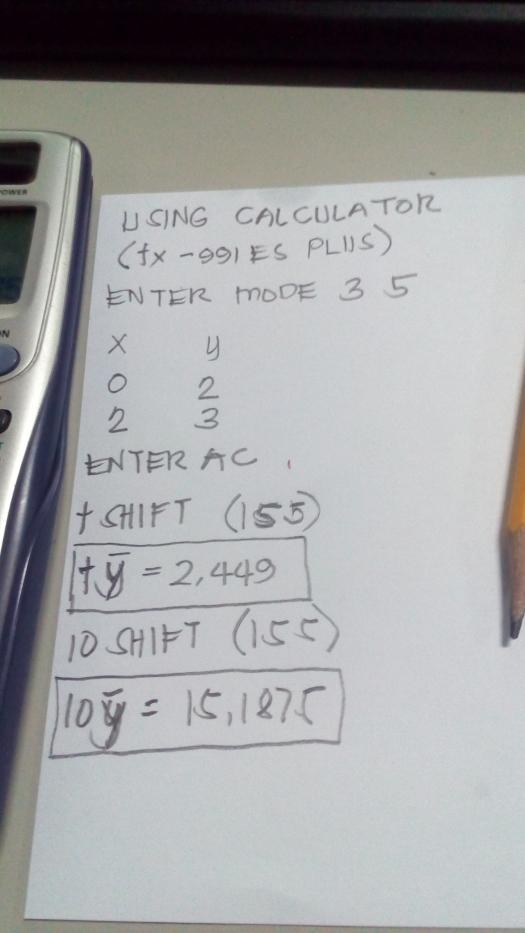Active forum topics
- Hydraulics: Rotating Vessel
- Inverse Trigo
- Application of Differential Equation: Newton's Law of Cooling
- Problems in progression
- General Solution of $y' = x \, \ln x$
- engineering economics: construct the cash flow diagram
- Eliminate the Arbitrary Constants
- Law of cosines
- Maxima and minima (trapezoidal gutter)
- Special products and factoring
New forum topics
- Hydraulics: Rotating Vessel
- Inverse Trigo
- Problems in progression
- General Solution of $y' = x \, \ln x$
- engineering economics: construct the cash flow diagram
- Integration of 4x^2/csc^3x√sinxcosx dx
- Maxima and minima (trapezoidal gutter)
- Special products and factoring
- Newton's Law of Cooling
- Find the roots of the quadratic equation by differentiation method
Recent comments
- Bakit po nagmultiply ng 3/4…4 weeks 1 day ago
- Determine the least depth…10 months 3 weeks ago
- Solve mo ang h manually…4 weeks 1 day ago
- Paano kinuha yung height na…11 months 1 week ago
- It's the unit conversion…11 months 2 weeks ago
- Refer to the figure below…11 months 2 weeks ago
- where do you get the sqrt414 weeks 1 day ago
- Thank you so much4 weeks 1 day ago
- How did you get the 2.8 mins…4 weeks 1 day ago
- How did you get the distance…4 weeks 1 day ago


Re: Growth problems
$\dfrac{dP}{dt} = kP$
$\dfrac{dP}{P} = k \, dt$
$\displaystyle \int \dfrac{dP}{P} = k \int dt$
$\ln P = kt + C$
$\ln P = \ln e^{kt} + C$
$\ln P - \ln e^{kt} + C$
$C = \ln \dfrac{P}{e^{kt}}$
When t = 0, P = 2
$C = \ln \dfrac{2}{e^{0}}$
$C = \ln 2$
Hence,
$\ln 2 = \ln \dfrac{P}{e^{kt}}$
$2 = \dfrac{P}{e^{kt}}$
$P = 2e^{kt}$
When t = 2, P = 3
$3 = 2e^{2k}$
$\dfrac{3}{2} = e^{2k}$
$e^k = \left( \dfrac{3}{2} \right)^{1/2}$
Thus,
$P = 2\left( \dfrac{3}{2} \right)^{t/2}$
(a) for t = 1
$P = 2\left( \dfrac{3}{2} \right)^{1/2} = 2.4495 ~ \text{oz}$ answer
(b) for t = 10
$P = 2\left( \dfrac{3}{2} \right)^{5} = 15.1875 ~ \text{oz}$ answer
Re: Growth problems: mold grows at a rate proportional to its...
post lang ako uli sir